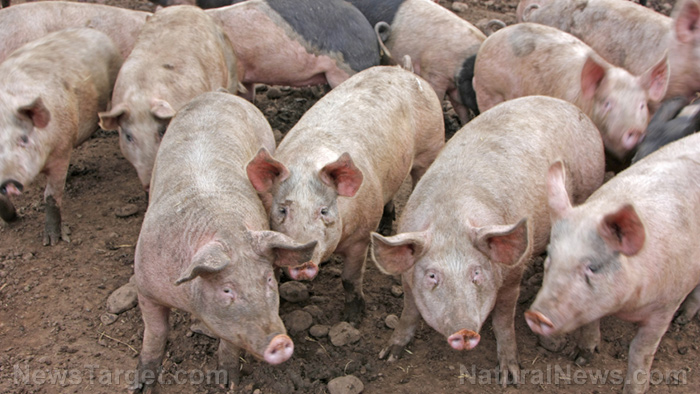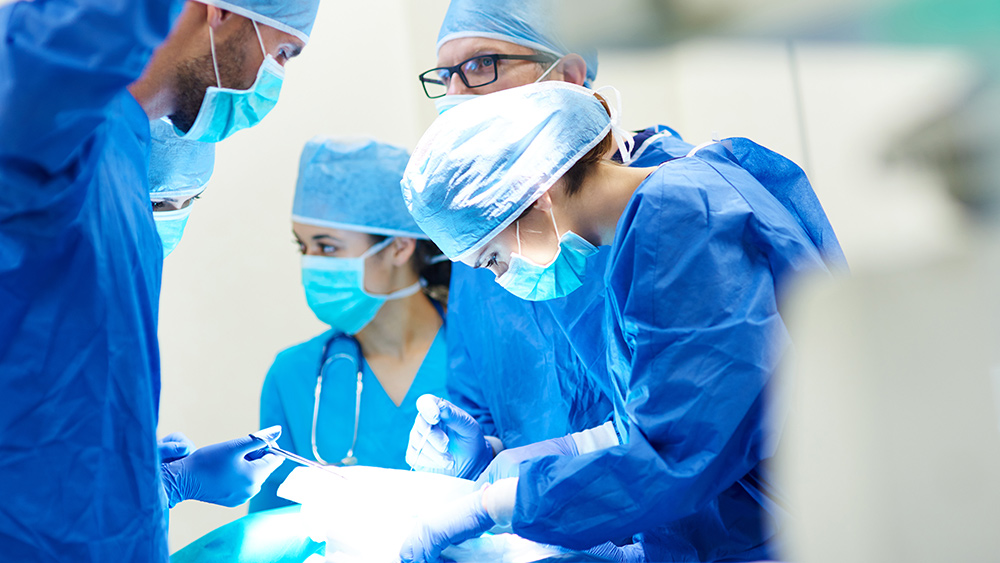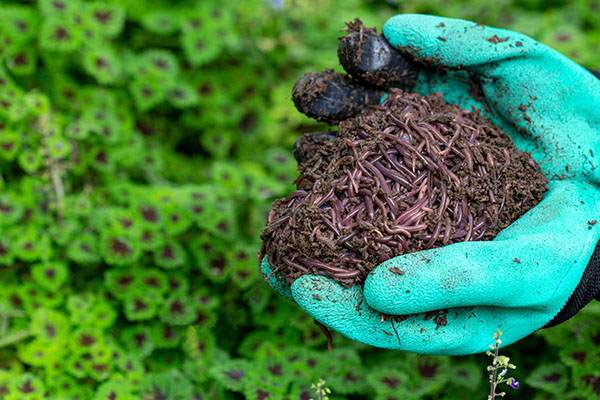Dangerous gene-edited pigs now authorized by Biden’s Food and Drug Administration
05/08/2023 / By JD Heyes

The consumption of gene-edited pigs has been authorized by the United States Food and Drug Administration (FDA) for use as German-style sausages, according to a report by NextGov.
Gene editing involves making changes in an organism’s DNA that would typically occur in nature or through selective breeding but would take longer without a tool like CRISPR.
While the FDA’s authorization is limited to these specific pigs, it demonstrates that gene-editing livestock to quickly produce desirable traits for improved food production is a viable strategy for helping feed the planet’s growing population, but of course, it will be with altered food that is not proven safe — like these pigs.
Jon Oatley, a professor in the School of Molecular Biosciences in Washington State University’s College of Veterinary Medicine, is working towards FDA approval for a line of gene-edited pigs and believes it’s essential for universities to set a precedent by working with federal regulators to introduce these animals into the food supply, ensuring that the research isn’t for naught.
“It’s important for a university to set the precedent by working with federal regulators to get these animals introduced into the food supply,” he told the outlet. “If we don’t go through that process, all of the research we’re doing is for naught because it will never make it out into the public.”
Oatley is utilizing CRISPR, the dangerous gene-editing tool, to enhance genetic traits in livestock and is currently striving for FDA approval for a line of gene-edited pigs. He initiated the investigational food use authorization process for five gene-edited pigs to demonstrate that food derived from these animals is safe to consume and to establish that an academic institution can obtain this type of FDA approval.

The pigs, which were two years old, were processed at the university’s Meat Lab and their meat was inspected by the US Department of Agriculture. Meat scientist Blake Foraker then turned some of the pork into sausages, which will be used to raise travel funds for the university’s Meat Judging team through catering services.
The pigs were initially gene-edited to serve as surrogate sires, meaning they could sire offspring with traits from another male pig. This involves gene-editing male animals to be sterile by targeting a gene specific to male fertility called NANOS2. The sterile male animals are then implanted with another male’s stem cells, which produce sperm with the desired traits that can be passed on to future generations.
Surrogate sire technology, a high-tech version of selective breeding, can revolutionize the dissemination of valuable genetics in livestock, enhancing meat quality, as well as animal health and resilience to changing environmental conditions, particularly in developing nations. The progeny of the surrogate sires have not yet undergone FDA review for possible food chain inclusion.
Obtaining investigational approval for the five gene-edited pigs required clearing several hurdles, including spending two years and about $200,000 collecting data for the authorization. While the FDA waives some fees for non-profit organizations such as universities, the process was still an arduous one for Oatley and his team.
“The original intent in making these animals was to try to improve the way that we feed people,” he told the outlet. “And we can’t do that unless we can work with the FDA system to get these animals actually into the food chain.”
Acceligen is the only other organization that has had a gene-edited animal approved by the FDA to enter the food supply. In 2020, the FDA granted a low-risk determination for products made from “Slick-Haired Cattle,” which are gene-edited to have coats that increase their resilience to higher temperatures.
Other companies have had genetically modified animals approved by the FDA, but their approach was transgenic, involving inserting DNA from outside species into the organism’s genome. Gene editing, on the other hand, is a more advanced technology that only works within a species’ DNA and can make changes that could occur naturally or through traditional breeding practices.
But it’s this very technology and tampering with our food chain that is to blame for a range of health phenomena and problems. And, the CRISPR tech itself was found to cause hundreds of “unintended mutations,” scientists have warned.
Sources include:
Submit a correction >>
Tagged Under:
big government, biotech, clean food watch, CRISPR, FDA, Food Evolution, food manipulation, food supply, frankenfood, gene editing, genetic lunacy, genetic modification, GMO, grocery, insanity, mutations, pigs, products, research, stop eating poison, tampering
This article may contain statements that reflect the opinion of the author




















